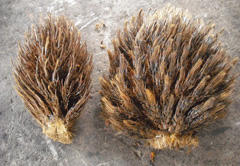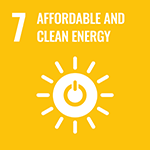Innovative Bio-production in Indonesia (iBioI): Integrated Bio-refinery Strategy to Promote Biomass Utilization using Super-microbes for Fuels and Chemicals Production
Principal Investigator


Prof.
Head of Research Center for Biotechnology, Indonesian Institute of Sciences (LIPI)
Prasetya Bambang
ODA Recipient Country
Republic of Indonesia
Research Institutions in Japan
Kobe University / Nagasaki University
Research Institutions in Counterpart Country
Indonesian Institute of Sciences (LIPI) / University of Indonesia (UI)
Adoption fiscal year
FY 2012
Research Period
5 Years
Overview of the Research Project
Using super-microbes to create fuel and chemicals, aiming to build a sustainable economy with biomass
Indonesia is a rich store of varied biomass and bioresources. This project aims to produce renewable energy and chemicals from biomass feedstock derived from palm tree waste, which does not compete with food crops. Specifically, by emulating creative factories that create chemical compounds with high efficiency from sugars in the biomass by artificially reconstructing metabolic pathways, the project aims to develop transgenic microbial "cell factories" that can lead to achieving significant energy savings and cost reductions for the whole production process.
Using biomass effectively can make this project a standard-bearer for eliminating global dependence on fossil resources
A major switch from the current dependence on fossil fuels to biorefineries that produce bio-based products from biomass would result in a paradigm shift in the structure of the chemical industry. Practical experiments in Indonesia will represent a pilot demonstration model for the use of cellulosic biomass, and the technology also has potential to be deployed in countries such as Thailand and Malaysia that have large storage potential of biomass.
Photo gallery

The feedstock under consideration for the current project is the empty fruit bunches (EFB) remaining after extracting palm oil. The main component of EFB is cellulose, and until now the bunches have been disposed of as waste in Indonesia. There is great potential for microbial conversion of EFB to fuels as well as chemicals.
Research Project Web site
Press Release
Links
Projects
Contact Us
Japan Science and Technology Agency (JST)
Department of International Affairs
SATREPS Group
TEL : +81-3-5214-8085
Related articles by Category
- Bioresources
Bioresources

 Republic of Indonesia
Republic of Indonesia
Promoting the blue economy by utilizing seaweed resources!
Development of Sustainable Seaweed Based Functional Products for Promoting Blue Economy
- Indonesia
Environment / Energy
(Carbon Neutrality)
 Republic of Indonesia
Republic of Indonesia
Creating a new chemical industry linked to Indonesian agriculture!
Development of Integrated Bio-circular Economy from Food and Energy Estate Waste Fraction to Biofuel and Bio-chemicals
- Asia
Environment / Energy
(Global-scale environmental issues)
 Kingdom of Thailand
Kingdom of Thailand
“Natural rubber seeds”, the unlimited potential hiding in natural rubber plantations
Utilization Technology of Rubber Seeds for Green Products to Mitigate Global Warming and Plastic Pollution
- SDGs : Goal.7
Environment / Energy
(Carbon Neutrality)
 Republic of Uzbekistan
Republic of Uzbekistan
Establishing hydrogen production technologies that fully utilize everything from solar power to underground resources!
Development of Innovative Technologies for Efficient Generation of Green/Blue Hydrogen for Realization of Carbon-neutral Society with Consideration of Industrial and Environmental Characteristics in the Region



















